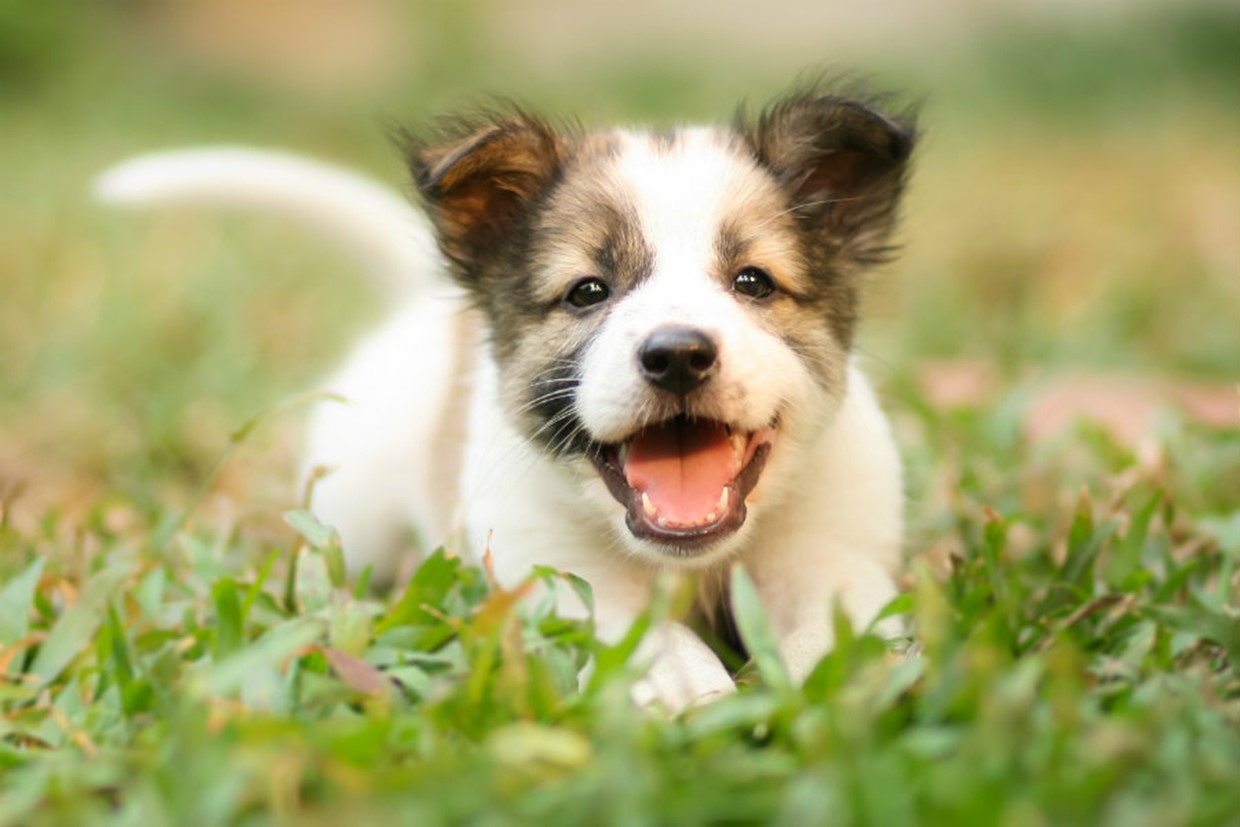A well-socialised puppy will find it easier to navigate life. You’ll be able to take them
confidently along with you, knowing that they can cope with situations.
Other people find well-socialised puppies a pleasure to be around.
We’ve all met dogs who bark and lunge when they see other dogs, or who are fearful
around certain people. Often, it could be easy to assume that they’ve had a bad experience or been hurt in the past. That’s not always the case, however. Simply having had no experience of being around children or other dogs, for instance, can be enough for some dogs to turn to fearful or aggressive displays because they are trying to keep themselves safe from a situation they never learned was safe.
Puppies are all different – some are naturally brave little characters while others are more timid. Whatever your puppy’s temperament, investing some time in socialising them while they’re young will equip them with skills for life and enable them to cope with most situations they may meet.

So, what is socialisation and why is it so important?
When puppies are very young, they need to learn which situations are safe and which ones could be risky for them. From about the first three weeks to three months of life, they go through what’s known as their ‘socialisation period’. They learn to accept all the sights and sounds of normal life so that when they meet those situations later on, they can relax, knowing they’re safe.
They also need to know when they could be in danger and what to do about it. At around eight to 11 weeks old and again at around six months, puppies have short periods of what is called neophobia. This means, ‘fear of new things’ and it plays a big part in how puppies and dogs keep themselves safe. Negative experiences during these periods can have a particularly big impact on a puppy’s view of the world.
It’s really important to provide a wide range of positive experiences for your puppy for at least their first year of life. But what sort of experiences are we talking about and how do we present those to the puppy and let them know they’re safe?
We take a lot of things for granted with our dogs, such as behaving calmly around different people or dogs, travelling in a car without seeming anxious or excited, even walking in puddles or crossing foot bridges. These are all situations many dogs could find tricky if they haven’t learned about them while they were puppies.
You might come across situations with your dog that you could never have practiced during their early months, but if you’ve equipped them to deal with lots of other sights and sounds, they’re more likely to accept this experience too.

No responses yet